Declan Conway

Declan Conway joined the Grantham Research Institute as a Professorial Research Fellow on the 28th October 2013.
Background
Declan’s research cuts across water, climate and society. He has current interests in behavioural and psychological approaches to water security and adaptation. Declan draws on insights from different disciplines to pursue problem focused research. He has over 25 years of experience working in the UK/Europe, sub-Saharan Africa and Asia. Declan’s research funding has included the EU, UK government departments FCDO and Defra, UK NERC and ESRC, US NSF, Canadian IDRC and the World Bank.
- Declan is jointly leading BASIN (Behavioural Adaptation for water Security and INclusion), which aims to synthesise, assess and test the application potential of behavioural and psychological science perspectives for adaptation to enhance water security for the most vulnerable. BASIN is working in Burkina Faso, Malawi and Tanzania in a transdisciplinary partnership with three other universities, three NGOs and a knowledge broker
- Recently completed projects include Climate resilience in the UK wine sector – CREWS-UK, Development Corridors Partnership and UMFULA (Uncertainty reduction in Models For Understanding deveLopment Applications)
Research Interests
- Behavioural and psychological perspectives on adaptation and water security
- Water security and climate change
- Adaptation and development
- Water-energy-food Nexus
Research
Research - 2025
This study looks at how different factors and responses to heatwaves interact, using the UK's 2022 heatwave as a case study. Read more

This brief outlines the integrated, synthesised approach to co-designing research to reconcile the different priorities and cultures of research and practice adopted by the BASIN project. Read more
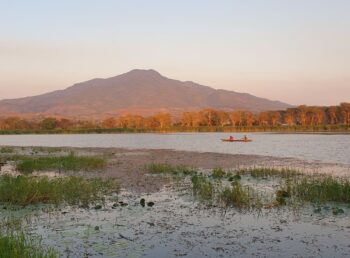
This brief from the BASIN project explores how behavioural research can better address complex, ‘wicked’ problems such as inclusive water security and climate adaptation. Read more
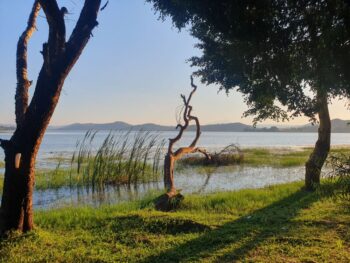
Research - 2024
Drawing from extensive literature and insights gleaned from a 4 year research programme, this review scrutinizes the impacts of development corridors on people, wildlife and ecosystems in Kenya and Tanzania, proposing solutions to achieve better outcomes. Read more

This study focuses on two research questions: what factors influence adaptation actions by organisations?, and what do organisations mean by the term ‘adaptation’? Read more

This review aims to characterize the main areas of research on water (including floods and droughts) which do feature concepts and methods from the behavioral and psychological sciences, discuss knowledge gaps, and draw attention to their potential to contribute to water-related research. Read more

Research - 2023
This research contributes to literature on private sector adaptation, examining business-level adaptation to climate change in the UK wine sector. Read more

This working paper considers how the geographical expansion of Ethiopia's social protection programme can address climate related risks in an adaptive way. Read more
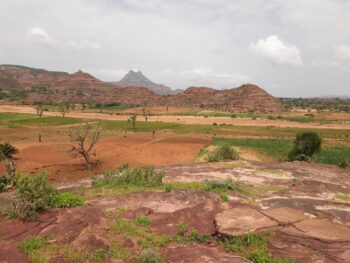
Based on a review of emerging migration science, the authors of this paper propose that migration is a successful adaptation to climate change if it increases well-being, reduces inequality, and promotes sustainability. Read more

This paper offers an empirical contribution on Caribbean perspectives of climate information use considering current barriers and enablers in the region. Read more

Research - 2022
Qualitative study on social protection in the context of national climate action. Read more
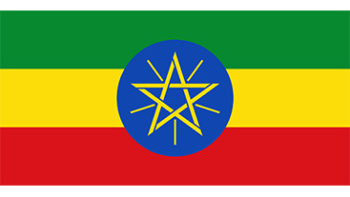
The authors of this paper simulate the projected repetition of the UK's highest yielding season —2018— and use an analogue approach to model the 1999–2018 mean growing season temperatures from Pinot noir producing areas of Champagne (France), Burgundy (France) and Baden (Germany) over the UK during 2021–2040. Read more

The authors of this paper propose an automated multi-criteria design-under-uncertainty sensitivity analysis formulation that uses multi-objective evolutionary algorithms to reveal robust and efficient designs under different samples of a climate scenario ensemble. Read more
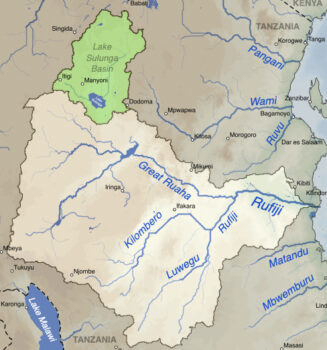
The authors of this paper conduct a systematic review to synthesize existing knowledge on differential vulnerability of female entrepreneurs in Africa to climate risk, in relation to their sensitivity to extreme climate events and their adaptive capacity. Read more
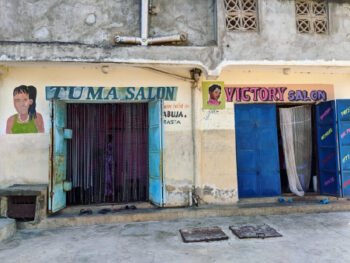
Malawi depends on Lake Malawi outflows into the Shire River for its water, energy and food (WEF) security. The authors of this paper explore future WEF security risks under the combined impacts of climate change and ambitious development pathways for water use expansion. Read more
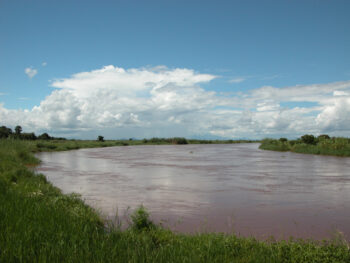
Using modelling and limited observational data the authors of this paper explore the costs and potential water savings of 24 combinations of water conservation measures in the Rufiji basin, Tanzania. Read more

Research - 2021
In this paper the authors advance a novel approach to integrated assessment of the ways in which the Sustainable Development Goals (SDGs) are likely to manifest and interact within a given development context, using Q-Methodology and the conceptual framing of imaginaries. Read more

West Africa exhibits decadal patterns in the behaviour of droughts and floods, creating challenges for effective water resources management. Proposed... Read more

Amidst increasing interest in multi-stakeholder partnerships (MSPs) in climate discourse, this paper identifies four rationales for why MSPs may be... Read more
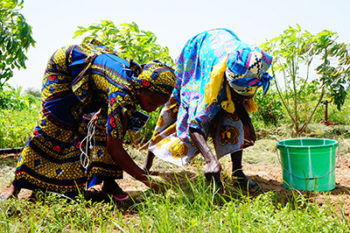
The authors of this paper examined past and future climate variability with the aim of understanding the main source of climate risk to development plans across the water, energy, and food sectors in southern East Africa, a relatively neglected region in terms of climate science and targeted for extensive infrastructure development. Read more
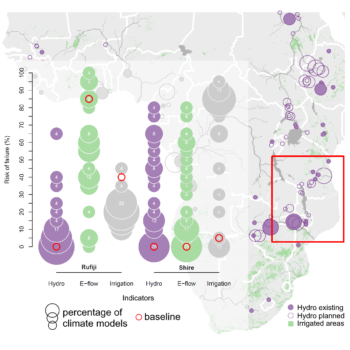
The authors of this paper introduce a novel method to compare the costs of water conservation measures with the added value that reallocation of water savings might generate if used for expansion of irrigation. Read more

Abstract Uncertainty in long-term projections of future climate can be substantial and presents a major challenge to climate change adaptation... Read more

This open access book highlights the complexities around making adaptation decisions and building resilience in the face of climate risk.... Read more
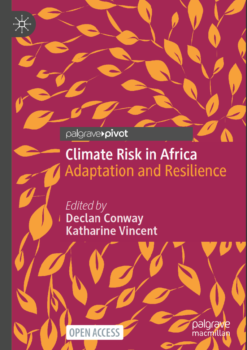
Research - 2020
The analysis suggests that the Sustainable Development Goals and their targets mostly create conditions that aid the achievement of each other within development corridors but that there are trade-offs between some goals and other development gains. The authors signal priority areas for investment, policy reorientation and strengthened safeguards, to maximise positive SDG interactions and minimise negative ones. Read more
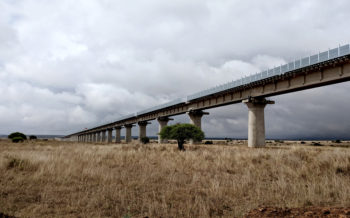
Declan Conway (Grantham Research Institute for Climate Change and the Environment, LSE), Steve Dorling (University of East Anglia) and Kate... Read more

In this paper, we use an inductive approach and longitudinal analysis to explore political influences on the emergence and evolution... Read more

This focus collection on resilience to climate shocks in the tropics draws together 16 papers that predominantly examine the impacts of, and responses to, the 2015/2016 El Niño-Southern Oscillation event, in a range of contexts. Read more

We quantify the heavily oil-dominated WEF nexus in three Gulf Cooperation Council (GCC) countries (Kuwait, Qatar and Saudi Arabia) across... Read more

Making climate-resilient planning and adaptation decisions is, in part, contingent on the use of climate information. Growing attention has been... Read more

Many river basins in the Global South are undergoing rapid development with major implications for the interdependent water‐energy‐food‐environmental (WEFE) “nexus”... Read more

This perspective explores how climate services may potentially incorporate information emerging from the new science of interannual-to-decadal (I2D) climate prediction in the Sahel region of West Africa. Read more

This paper investigates the role of multi-stakeholder partnerships (MSPs) in supporting the development of enabling conditions for adaptation to climate change among micro, small and medium enterprises (SMEs) in developing countries, with a focus on Kenya. Read more
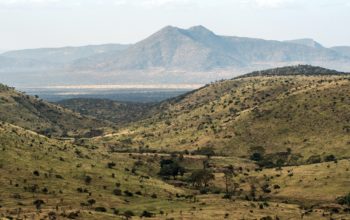
Abstract Over 90% of Malawi’s electricity generation and irrigation depend on Lake Malawi outflows into the Shire River. Recent lake... Read more
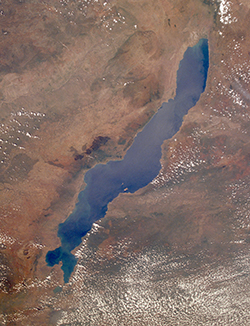
Globally, semi-arid lands (SALs) are home to approximately one billion people, including some of the poorest and least food secure.... Read more

Research - 2019
Economic challenges as a result of the recent fluctuations in oil prices have exposed unprecedented risks to Kuwait and the... Read more

Malawi is highly dependent on water from Lake Malawi and the Shire River basin (Figure 1). Over 90% of Malawi’s... Read more
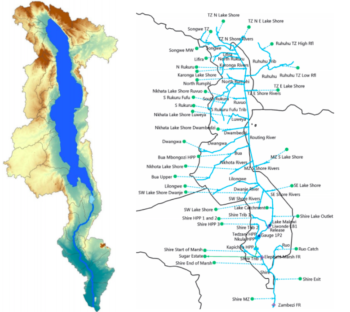
Abstract Studies of climate change at specific intervals of future warming have primarily been addressed through top-down approaches using climate... Read more

In economically marginal rural areas, choice in livelihood strategy such as decisions to move location mediates levels of individual and... Read more

Research - 2018
The El Niño event in 2015/2016 was one of the strongest since at least 1950. Through surveys and interviews with... Read more

Rapid advances in global hydrological model (GHM) resolution, model features, and in situ and remotely sensed datasets are driving progress... Read more

Government ministries are increasingly mainstreaming climate change adaptation within policies and plans. However, government staff in key implementing ministries need... Read more

Mitigating climate change by reducing greenhouse gas emissions has many health co-benefits and is a top public health priority. Policies... Read more

Abstract Knowledge about regional and local climate change can inform climate risk assessments and adaptation decisions. However, estimates of future... Read more

Paper begins to define new approaches to risk assessment that can account for transboundary and trans-sector risk transmission. Read more
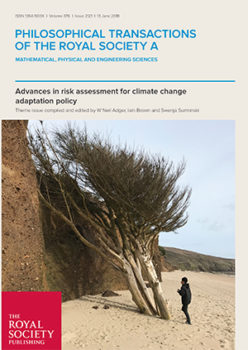
This paper explores the agricultural groundwater management system of Mogwadi (Dendron), Limpopo, South Africa – an area associated with intensive... Read more

This research applies a Decision‐Making Under Uncertainty (DMUU) approach to explore the robustness of adaptation options and pathways against future climate and socioeconomic uncertainties in the Cauvery River Basin in Karnataka, India. Read more

The 2015/2016 El Niño was one of the three most severe on record. El Niño is commonly linked to droughts... Read more

Research - 2017
This paper explores how hydropower dams planned for eastern and southern Africa could put electricity supply at risk for vast regions because they rely on the same rainfall patterns for electricity generation. Read more

Using document analysis and key informant interviews, this article examines how climate change is addressed in policy, how it is being mainstreamed into water, energy and agriculture sector policies and the extent to which cross-sectoral linkages enable coordinated action. These questions are addressed through a case study of Tanzania, highlighting broader lessons for other developing countries, particularly those in SSA facing similar challenges. Read more

This paper presents an agenda for the next generation of climate adaptation research for development. The agenda is based on insights from a dialogue session held at the 2016 Adaptation Futures conference as well as drawing on the collective experience of the authors. Read more

Abstract Subjective approaches to resilience measurement are gaining traction as a complementary approach to the standard frameworks that typically contain... Read more

Abstract Transboundary water resources management in the Equatorial Nile Basin (EQNB) is a politically contested issue. There is a growing... Read more

Abstract The Paris Agreement long-term global temperature goal refers to two global warming levels: well below 2°C and 1.5°C above... Read more

Research - 2016
Abstract Climate change adaptation is unavoidable, particularly in developing countries where the adaptation deficit is often larger than in developed... Read more

Abstract There are strong interdependencies between water use in agriculture and energy consumption as water saving technologies can require increased... Read more

Abstract Rising atmospheric CO2 concentrations ([CO2]) are expected to enhance photosynthesis and reduce crop water use. However, there is high... Read more

We combine global hydrological model simulations with international food trade data to quantify the water resources embedded in international food trade in southern Africa and with the rest of the world, from 1986–2011. Read more
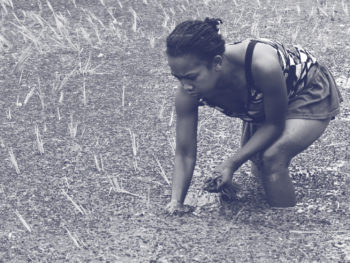
Research - 2015
This paper identifies over 50,000 patents filed worldwide in various water-related technologies between 1990 and 2010, distinguishing between those related... Read more

In southern Africa, the connections between climate and the water–energy–food nexus are strong. Physical and socioeconomic exposure to climate is... Read more

The ‘nexus’ between water, energy and food (WEF) has gained increasing attention globally in research, business and policy spheres. We... Read more

This paper identifies over 50 000 patents filed worldwide in various water-related technologies between 1990 and 2010, distinguishing between those related to availability (supply) and conservation (demand) technologies. Read more

Research - 2014
This paper reviews the state of knowledge on social vulnerability to climate change in three hot spots (deltas, semi-arid regions and snowpack- or glacier-fed river basins) in Africa, Central Asia and South Asia, using elements of systematic review methods. Read more

We review the historical and legal role of International River Boundaries highlighting the paradox that exists between the stability needed for a boundary and the dynamism of fluvial landscapes in a changing climate. Read more

The international community's support for adaptation in developing countries has proliferated through numerous complementary funding mechanisms. A range of serious practical issues are emerging, however, as adaptation moves from theory and international negotiation to implementation. We identify three areas deserving greater scrutiny: in-country priorities, entry points and delivery systems, and provide recommendations for improving adaptation practice. These concerns, if not addressed, have the potential to hamper attempts at effective delivery and to increase the vulnerability of intended beneficiaries of the adaptation agenda. Read more

This study applies the global crop model PEGASUS to quantify, for the first time at the global scale, impacts of extreme heat stress on maize, spring wheat and soybean yields resulting from 72 climate change scenarios for the 21st century. Read more

Conway, D., Barnett, J., Betsill, M.M., Lebel, L. and Seto, K.C. (2014). Global Environmental Change 25, 1-4. Read more

Policy
Policy - 2025
This brief presents findings from a survey of 202 female and male entrepreneurs in South Africa to assess gendered differences in climate information use and provide recommendations for policymakers. Read more
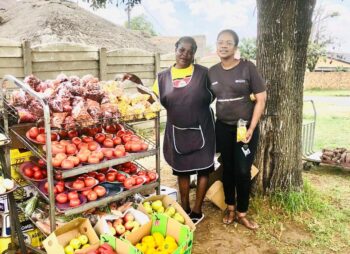
Policy - 2024
Climate change presents both opportunities and challenges for the UK wine sector. This policy brief sets out what more needs to be done to enhance resilience in UK viticulture, drawing on the CREWS-UK project. Read more
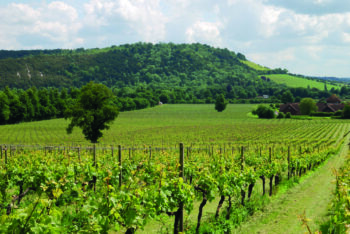
Policy - 2023
This policy brief draws on research undertaken in Laikipia County in central Kenya to underscore the challenges faced by female entrepreneurs in Africa in the face of climate change and how policy can support them to build strong, climate-resilient businesses across Sub-Saharan Africa and beyond. Read more
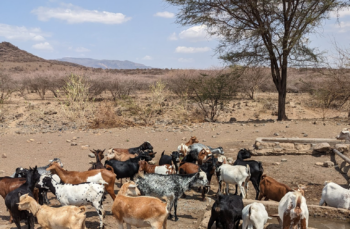
Policy - 2022
This is a short summary of the latest research from the CREWS-UK project, which has found that climate change is likely to further impact the viability, variety suitability and wine style potential of viticulture in the UK. Read more
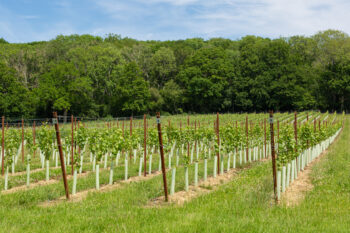
Policy - 2021
A submission based on work from across the Grantham Research Institute to the FCDO's recent call for evidence to inform the UK's forthcoming International Development Strategy. Read more

This report presents the headline findings from a national survey of UK-based organisations’ perceptions about adapting to a changing climate, providing insights into a wide range of factors affecting organisational and sectoral perspectives on preparedness, risk and adaptation. Read more
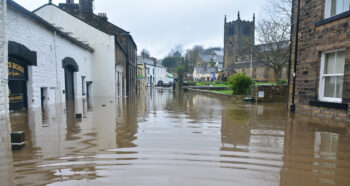
Policy - 2019
This special collaboration between LSE’s Institute of Global Affairs and the Grantham Research Institute contains contributions from academics, researchers and organisations addressing the strongly interlinked climate threat and the health of the ocean. Read more

This brief introduces the concept of climate information and reasons for its use in major decisions about water, energy and agriculture, including new infrastructure investments. Read more
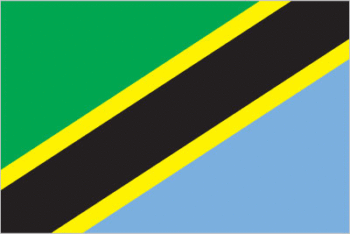
Policy - 2018
With substantial new hydropower generation planned for eastern and southern Africa, how can risks from rainfall variations and climate change be overcome to ensure reliable supply and socioeconomic development? This brief analyses the challenges and provides recommendations to policymakers, the energy sector and development partners. Read more

This is the French translation of the PRISE [PRESA] policy brief 'Supporting private adaptation to climate change in semi-arid lands in developing countries', published in June 2018. Read more

National governments, with development partners, have an important role to play in supporting adaptation and climate-resilient development among private actors – households, producers and small businesses – in the semi-arid lands of developing countries, argues this brief, a final output from the Pathways to Resilience in Semi-Arid Economies (PRISE) project. Read more
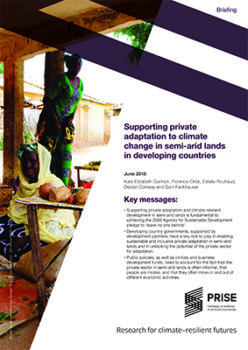
This briefing note submits learning to the Talanoa Dialogue process from PRISE on supporting private adaptation to climate change by households and businesses in semi-arid lands. Read more

Policy - 2017
This brief provides an overview of future climate change in Tanzania, using results from the latest available climate model simulations. The UMFULA research team of the Future Climate for Africa (FCFA) programme has analysed 34 Global Climate Models (GCMs) that provide projections for Tanzania to try to distil robust messages and some key trends that may help planning and decision-making. Read more

This brief provides an overview of future climate change in Malawi, using results from the latest available climate model simulations.... Read more
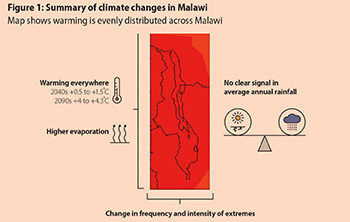
Global climate models (GCMs) are the most widely used method to understand future climate change. A new guide from the... Read more
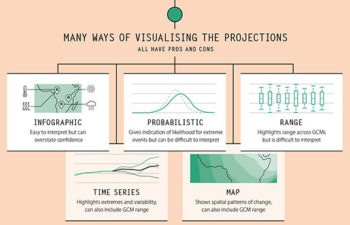
Books
Books - 2021
This open access book highlights the complexities around making adaptation decisions and building resilience in the face of climate risk.... Read more

Events
Events - 2026
Events - 2024
Climate Change: Economics and Governance – LSE Executive Education course
Event Type: LSE Executive Education CoursesClimate Change: Economics and Governance – LSE Executive Education course
Event Type: LSE Executive Education CoursesEvents - 2023
Events - 2022
Events - 2021
Events - 2020
Events - 2016
News
News - 2024
Behavioural perspectives are under-recognised in the study of water but their possible benefits include contributing to a deeper understanding of human–water interactions improving policy design. Read more

News - 2023
In many water-stressed parts of the world there need to be improvements in decision-making around water resources to make climate change adaptation more effective and equitable in policy and practice. This commentary introduces the issues and a new project called BASIN that aims to draw insights from behavioural and psychological sciences to improve decision-making in this area. Read more
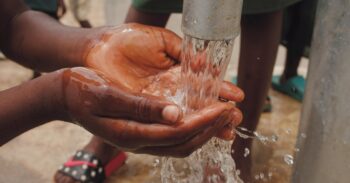
News - 2021
Christian Siderius and Declan Conway highlight some of the barriers and opportunities to achieving more sustainable water use in the ‘breadbasket’ of India, at a time of unrest among many farmers faced with new laws they perceive threaten their livelihoods. Read more

We all have to live with the risks posed by climate change, and learning how best to adapt will continue for decades into the future. There are no blueprints: instead we must learn by trial and improvement, write Declan Conway and Katharine Vincent, as they draw on experiences from research in Africa. Read more
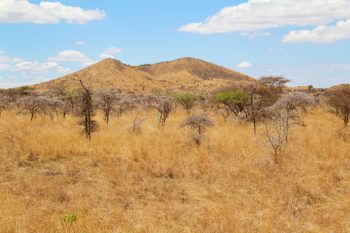
News - 2020
There are two dimensions to understanding the WEF nexus: quantifying the physical links between each element, and unravelling the management and governance structures involved. Declan Conway and Christian Siderius explain, drawing on their work in the Arabian Gulf and Tanzania. Read more
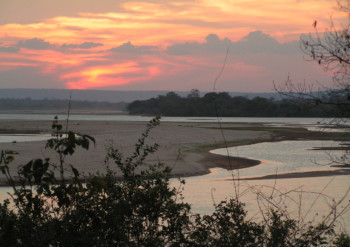
News - 2019
Malawi’s power sector is “massively exposed to fluctuations in the lake level,” says Declan Conway of the London School of Economics. Read more

Understanding the connections between water use, and energy and food production can help us address some of challenges posed by climate change. Read more

Declan Conway and Patrick Curran use recent findings from research into different risk assessment approaches and adaptation planning in climate change ‘hotspots’ in Africa and Asia to show the value of hybrid methods for creating more sustainable adaptation strategies. Read more
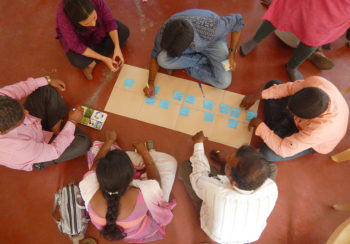
News - 2018
Reuters Foundation News, 7 December 2018 Read more

The Conversation, 5 December 2018 Read more

The major disruption to urban water and hydroelectricity supplies caused by the conditions accompanying the 2015/16 El Niño in Southern Africa show that governments and businesses need to be more prepared for climatic extremes, argue the authors of this commentary. Read more
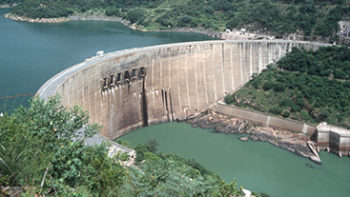
Power Technology, 10 July 2018 Read more

Philosophical Transactions of The Royal Society A has published a themed issue on ‘Advances in risk assessment for climate change... Read more
News - 2017
New research published in Nature Energy this month finds that plans for new dams could put electricity generation and supply at risk and highlights the importance of considering rainfall patterns when planning the location of new hydropower dams in Africa Read more
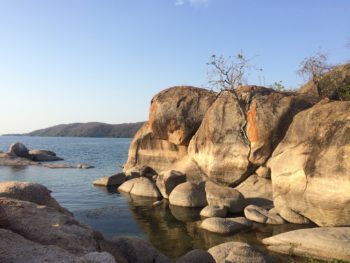
Declan Conway comments on new research published in Nature Climate change on future Nile river flows. The work shows annual... Read more

Carbon Brief, 25 January 2017 Read more

News - 2016
Global Environmental Change, whose co-editor-in-chief is Declan Conway, was the top ranking journal for Social Sciences: Geography, Planning and Development... Read more
A new Grantham Research Institute project is exploring the impact of El Niño and La Niña events on small-and medium-sized enterprises in Africa. Read more

Global Environmental Change, whose co-editor-in-chief is Declan Conway, saw a 5.679 increase in its Impact Factor during 2015. Global Environmental... Read more
How technology can address the challenge of global water security. Read more

News - 2015
Many international river basins are suffering from climate-driven impacts, with implications for national security. Now, research highlights the need to analyse shifting river boundaries to better understand potential socio-political threats. Read more

The Institute is to lead one of the five research consortia that form the Future Climate for Africa (FCFA) Programme, funded by the UK’s Department for International Development and the Natural Environment Research Council. Read more
Professorial Research Fellow, Declan Conway, writes about the recent upsurge in research and policy interest in natural resource scarcity, particularly in relation to the water-energy-food nexus. Read more

Declan Conway is among a number of leading experts in the field to contribute to a series of essays debating key issues in freshwater research and management in Science magazine. Read more

Asia's mega-deltas are densely populated and face multiple stressors including upstream development and sea-level rise. Adapting to these challenges requires difficult choices between hard and soft responses set within a strongly political context. Read more

News - 2014
LSE adminsinistered journal ranked as the highest impact journal in the environmental sciences. Read more
Resource challenges are highly interconnected. Can the idea of a food-energy-water ‘nexus’ become more than another buzzword, and help us... Read more


